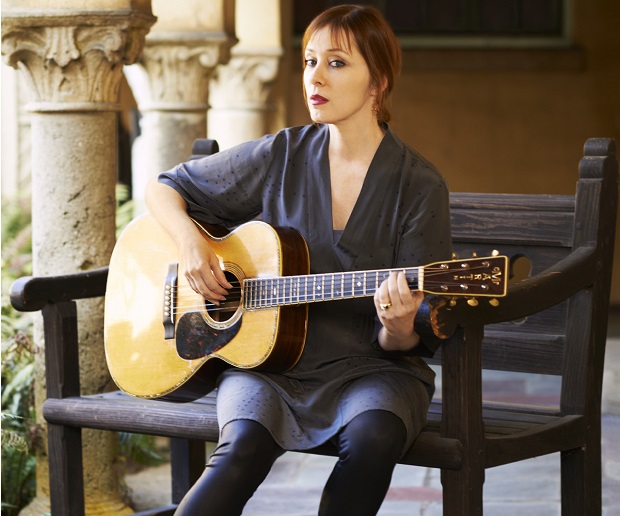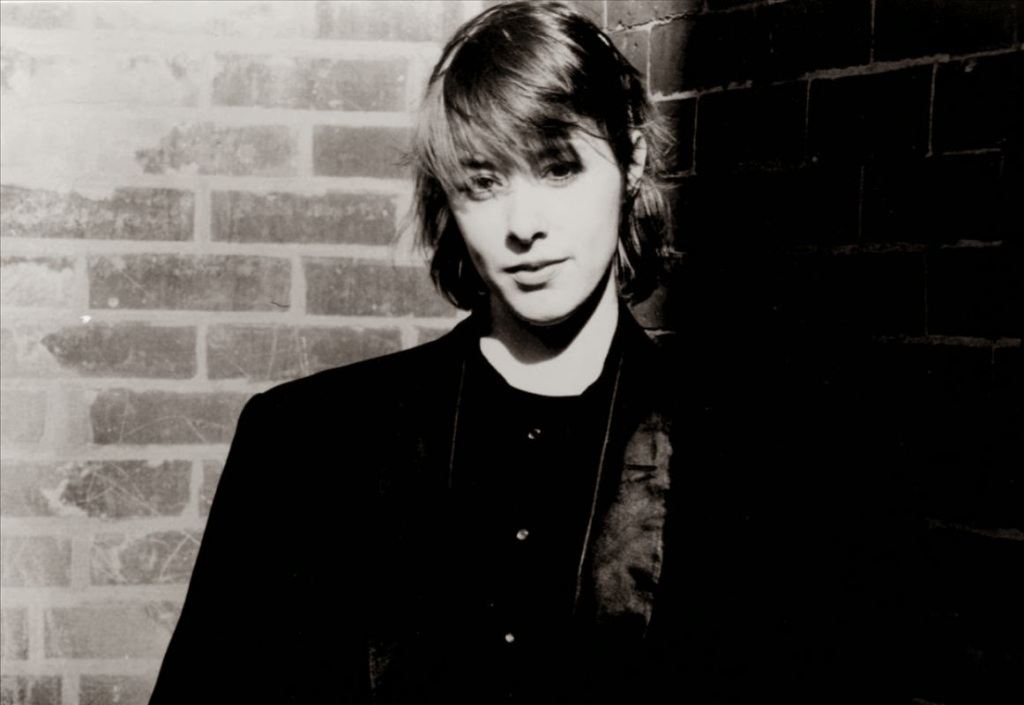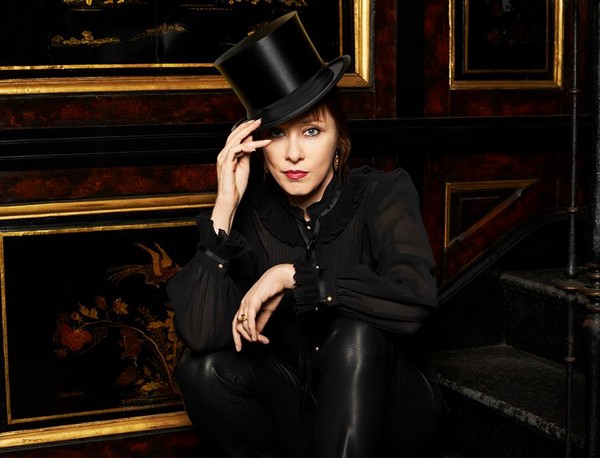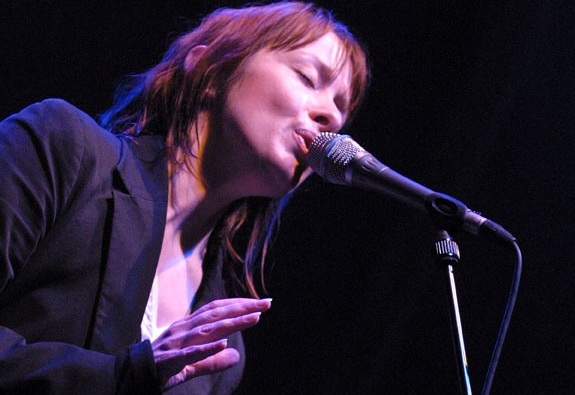A CHAT WITH: SUZANNE VEGA
aaamusic | On 02, Jun 2015
Iconic singer songwriter Suzanne Vega is one of the most gifted artists of her generation. She’s well known internationally as an influential folk artist and writer of legendary songs like ‘Luka’ and ‘Tom’s Diner’. This year she celebrates the thirtieth anniversary of her critically acclaimed debut album. Interviewer Anthony Weightman chatted to her in New York ahead of her UK tour in June, 2015.
Anthony Weightman: I hope it’s a pleasant climate in New York at the moment. When I spoke to you in January last year you were trapped in Arctic conditions.
Suzanne Vega: [laughs] It’s not Arctic, but it’s a lot chillier than I would have expected. I had a little taste of summer but now it’s gone hiding again.
Anthony Weightman: I wish you good luck on your UK tour next month. Would you like to say a few words about this?
Suzanne Vega: Yes, I’m coming over with Gerry Leonard. He’s my guitar player and a great one. We’re starting the tour at the Isle Of Wight and that’s going to be a lot of fun. We’re doing one set with Tony Visconti and I’ll be singing ‘The Man Who Sold The World’ by David Bowie and that’ll be fun. We’re doing a mix of old and new. We’ll probably put in quite a bit of the first album because it’s the thirtieth anniversary. These are all things we can look forward to.
Anthony Weightman: The Isle Of Wight Festival is your first live gig in the UK this year. It developed a reputation in the 60s as a famous counter culture event. Followers trekked across the world to see Bob Dylan there. Joni Mitchell gave a legendary performance. Jimi Hendrix was possibly at the height of his abilities there, just days before he sadly passed away. Is it the interesting history of the festival that’s part of the appeal?
Suzanne Vega: Oh yes. Definitely. I’ve seen some great shows there, even recently. I guess the best ones I saw were The Who on Saturday night and David Bowie on Sunday night. Pretty great, I have to say!
Anthony Weightman: You once described going on tour as like being part of a family, with a shared feeling of adventure but with a degree of formality as well as familiarity. Is that how you still feel about touring?
Suzanne Vega: [laughs] Er…yes. That kind of sums it up. I know my guys really well. We all love each other in some weird way. It’s good. I like it.
Anthony Weightman: It was wonderful to see you perform your debut album live in the mid eighties in London. It has it’s 30th anniversary this year. On release it received a great deal of praise, variously described as fresh, graceful, intense, cohesive, liberating and invigorating. The compliments seemed to be never-ending with words like dazzling, perfect, timeless, extraordinary, consistently good and achieving an impossibly high quality of writing. How did you react at the time to the way at least some reviewers clearly loved the album?
Suzanne Vega: I was grateful because I’d worked long and hard. I’d been writing for ten years before that album came out. So many people told me that I would be lucky to get anywhere as a songwriter or singer or any kind of performer. I was very happy that it was embraced the way it was. I hold myself to really high standards, so I was pleased that other people embraced it the way they did.
Anthony Weightman: There were some unexpected observations by reviewers about the album which I found a little difficult to understand. There’s a reference to the album being “aloof”. To me, the lyrics may be sparse, thoughtful and introspective, but the album seems warm and friendly. There’s no feeling of detachment or arrogance.
Suzanne Vega: Actually, as a child I was frequently called aloof, so I probably wasn’t surprised by that. I think that most female songwriters have a reputation for being confessional. For talking about their feelings and their innermost situation. To be honest, a song like ‘Cracking’ which begins the album could be considered aloof if you didn’t know what the situation was. You might think that it’s kind of a weird song. It’s not the usual singer songwriter affair. It’s a little more abstract than that, which explains “aloof”.
Anthony Weightman: There’s the accusation of “affectation”. In your defence, there’s no pretentiousness that I can see. It’s a personal, intense album that impresses people because it seems clever and intelligent.
Suzanne Vega: The person who said there was a sense of affectation probably didn’t like ‘The Queen And The Soldier’. There are a group of people who don’t like it. They feel it’s made up and weird. They didn’t like the way I got my point of view across. So, the person who wrote that either doesn’t like poetry in general or doesn’t like the whole premise for the song.
Anthony Weightman: They thought that it wasn’t compatible with the rest of the album, did they?
Suzanne Vega: I don’t know. People are passionate about that song one way or the other. They either love or hate the song. Some people think its very kitsch. One person seemed to think it involved unicorns somehow. There’s not a single unicorn in the song from beginning to end. There are real queens and soldiers in the world. What can I say? I like the song and I still sing it!
Anthony Weightman: So do I, personally. The expression “self consciously artistic” made me a little uneasy. If the reviewer was trying to say something meaningful it’s not exactly clear what that was.
Suzanne Vega: I don’t either! I’m from a very artistic family. It’s the way we were brought up. I kept a journal at about twelve. It was the thing that we did. That might come from someone who finds all art to be self-conscious.
Anthony Weightman: Personally, I can see that all art could be considered self-conscious in one form or another.
Suzanne Vega: If you’re deeply involved in fixing a car, for example, it may not be as self-conscious as writing a poem. There’ll be some similarities and some differences.
Anthony Weightman: “A slightly prissy precision” is another comment. If you’re singing lyrics so that a listener can easily understand them, surely it can’t be said that you’re being excessively fussy. Also, musicians who use words precisely often do so simply because they have a love of language.
Suzanne Vega: I grew up in a very working class neighbourhood. My father who raised me was born in Puerto Rico and came to New York as a thirteen year old. In his family it was a big deal not to speak with an accent, because his first language was Spanish and he felt people shouldn’t retain their accent after thirty years. In our house speaking clearly and speaking well was an issue. So, to avoid my father’s wrath I learned how to speak very clearly and very distinctly. I’ve been a host for NPR radio shows. That’s how clearly I speak. So, clearly my father made his point and I’ve done a good job in enunciating.
Anthony Weightman: I think I avoided my father’s wrath in the same way. Someone also said you “managed to remain the right side of twee”, which I don’t particularly mind, though the word “twee” is not often found in music reviews, It means “sentimentally pretty”, but sometimes it’s interpreted incorrectly as meaning something else.
Suzanne Vega: I’ve never heard the word “twee” before and I’d never heard the word “bedsit” before I came to England on that first tour.
Anthony Weightman: Which reviewers may have used when commenting on ‘Marlene On The Wall’.
Suzanne Vega: Yes, about the poster on the wall of a bedsit. An eye-opening experience for me.
Anthony Weightman: Well, that’s the end of the odd and curious comments I came across.
Suzanne Vega: It was entertaining.
Anthony Weightman: Sometimes you feel that reviewers are on a different planet.
Suzanne Vega: I have often thought that, yes.
Anthony Weightman: When I spoke to you early last year I mentioned that in 2013 in the UK there had been constant press coverage on the subject of child abuse. It was always there in the background. Nobody could escape it. You said you felt it was good that these things came out in the press and were covered until they were done. This year things haven’t really changed much. There’s a huge inquiry into historical abuse just about to begin. With the subject remaining so topical and controversial, how does that tend to affect you emotionally when you’re on stage and an audience still wants to hear ‘Luka’?
Suzanne Vega: I’m always happy to sing ‘Luka’. I always still feel a strong emotional connection to the song. I don’t think of it as an old hit that I once had. I don’t see it that way at all. I’m aware that a lot of people still love the song. It’s very meaningful to a lot of people. There’s a generation of people who didn’t hear the song the first time it was out or were very young when it was a hit. Now they’ve caught up with the story of the song and I’ve had letters recently from people who’ve expressed what the song means to them. So, it’s still alive for me and I still feel that sense of communion when I sing it.
Anthony Weightman: You once referred to your social life in New York as being “a thinly, sparsely populated little gathering of forlorn and homeless people”. Seriously though, what would be an idyllic night out for you in your home city?
Suzanne Vega: I like going out, actually. I like going out to eat. My husband and I go out often. We have a favourite restaurant where we have martinis and the special on the menu. I love it. It’s great. That’s terrific, but we also go out to see a show or a play. We went to see Sting‘s play last December which I enjoyed very much in spite of the reviews. I do get invited to a party now and again and I enjoy that too.
Anthony Weightman: When we last spoke you said an autobiography was really something for the future. You stressed that it’s not enough for it to be just a series of true events, it has to be interesting. Have you had any further thoughts on this?
Suzanne Vega: I have. Yes, the future may be approaching. I would need a little time off from the road to really do a good job. But, I’ve been talking about it to a few people in New York, so we’ll see whether that comes to pass in the next couple of years.
Anthony Weightman
Suzanne Vega tours the UK in June. Click here for info and tickets…






